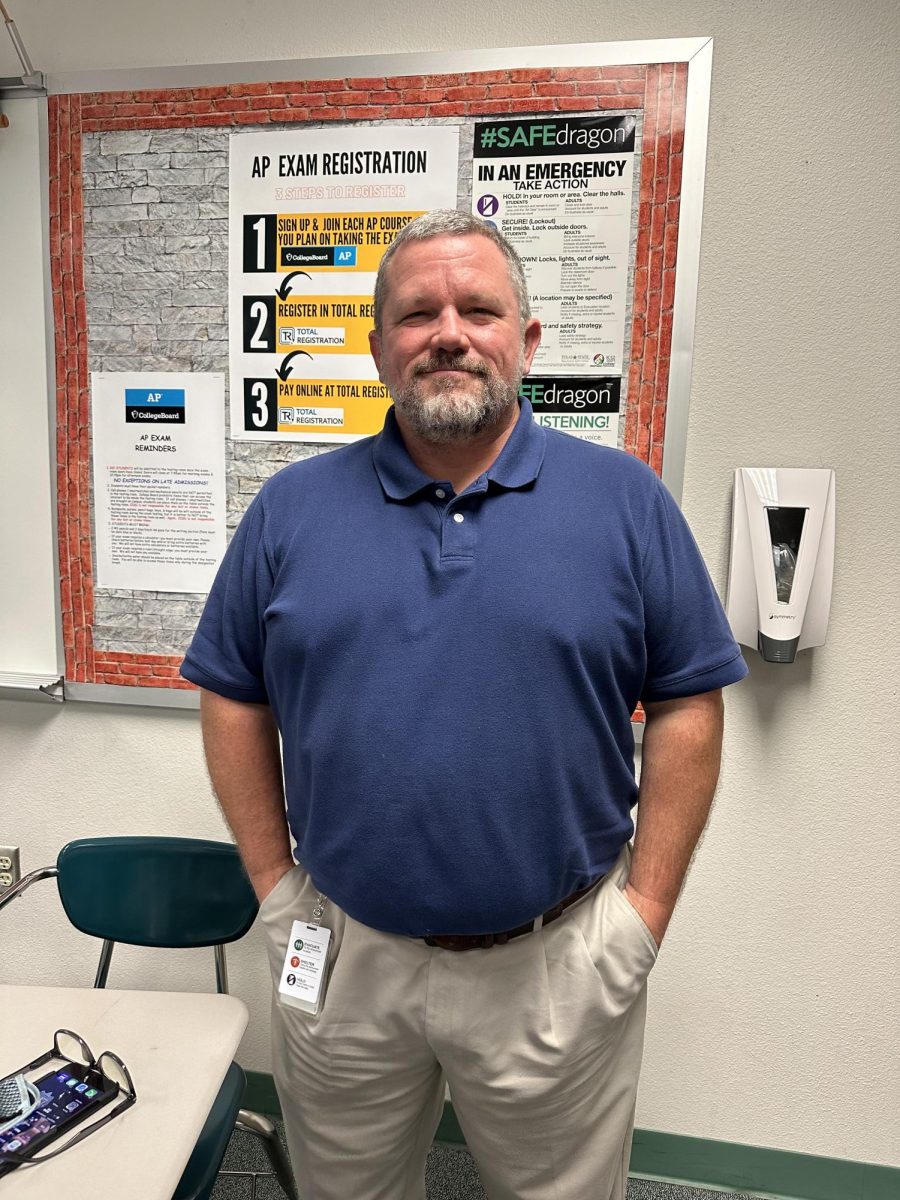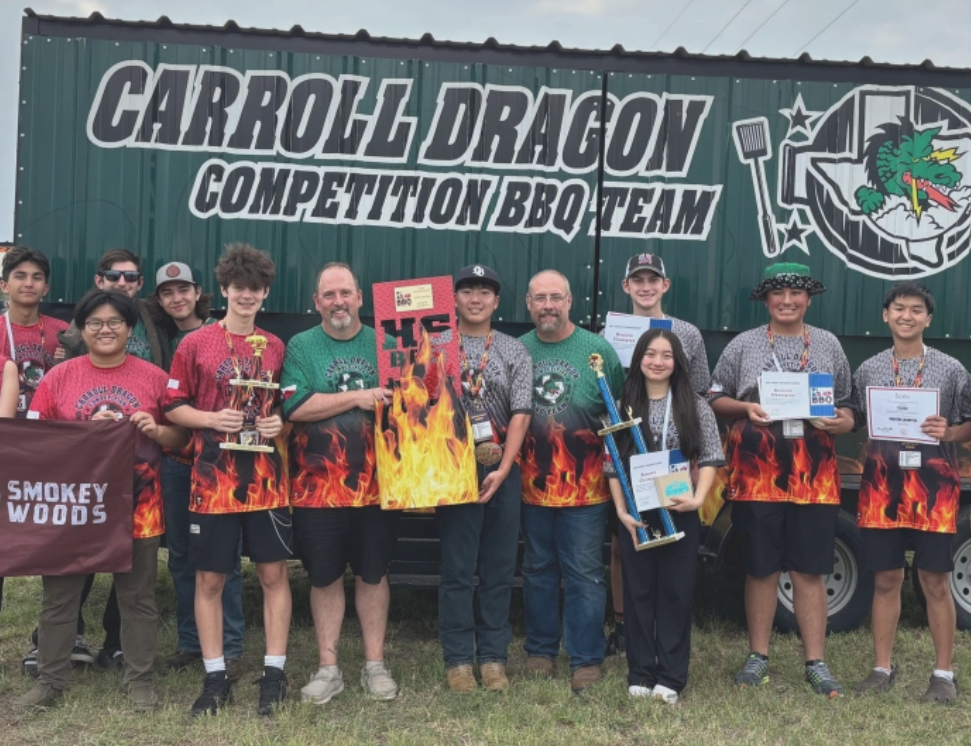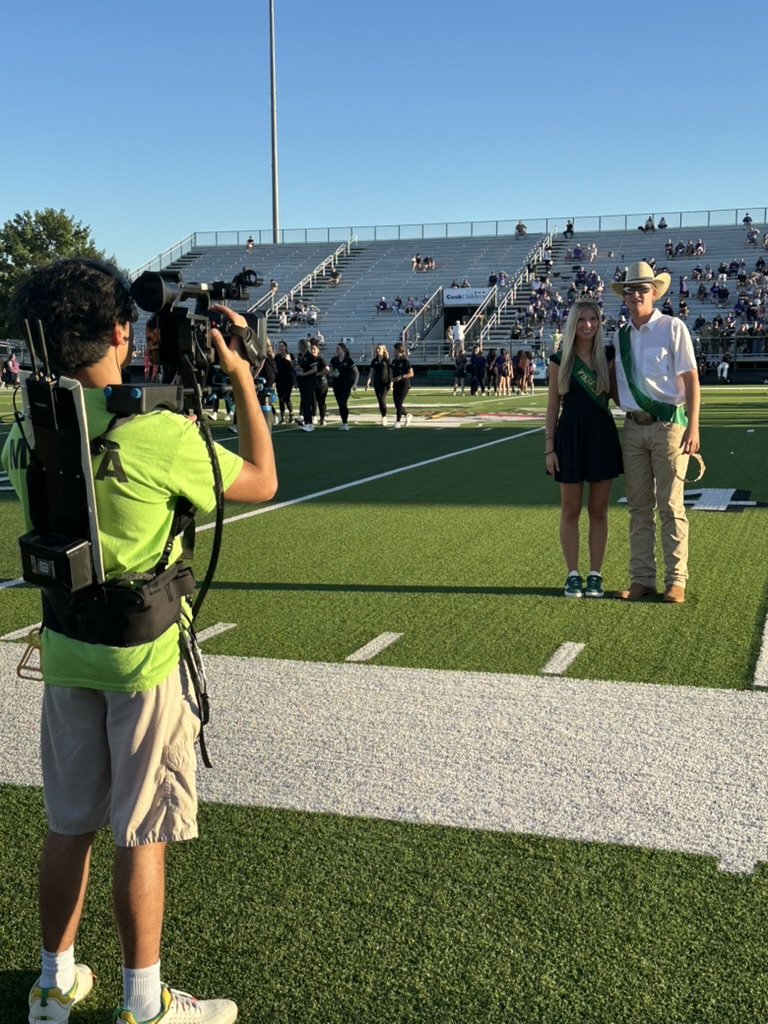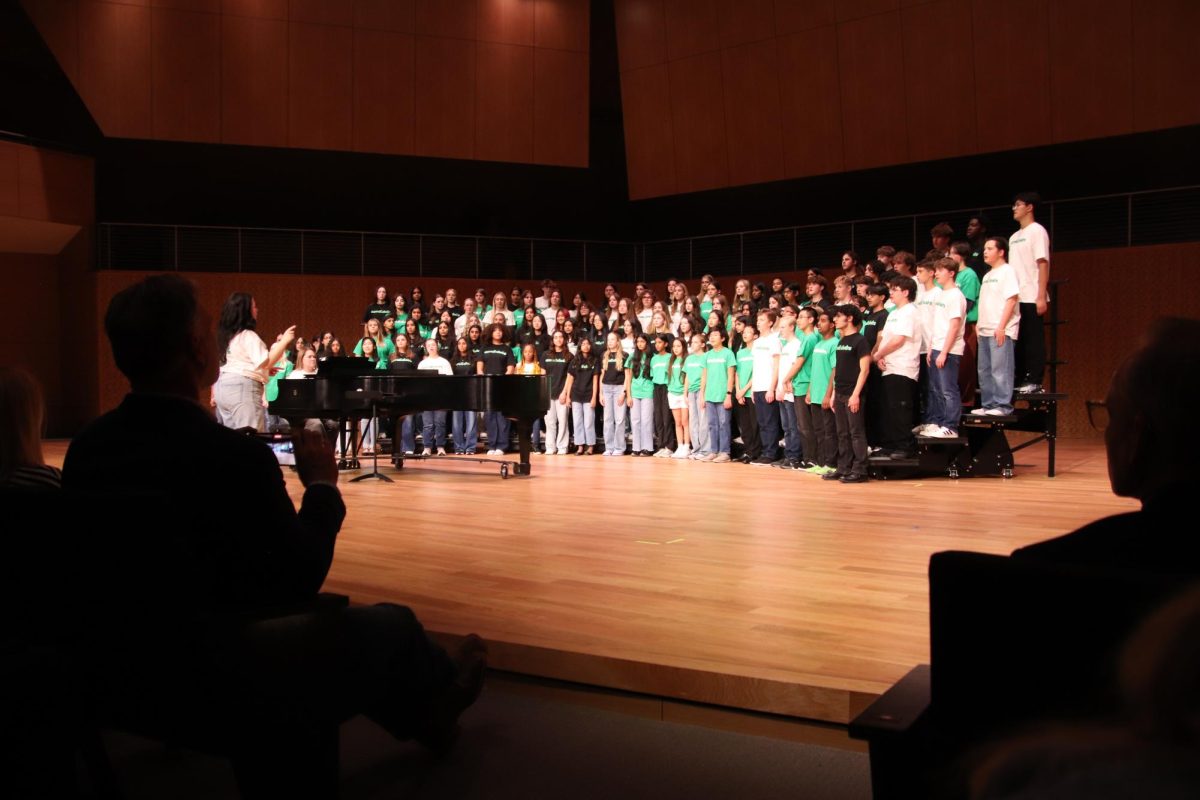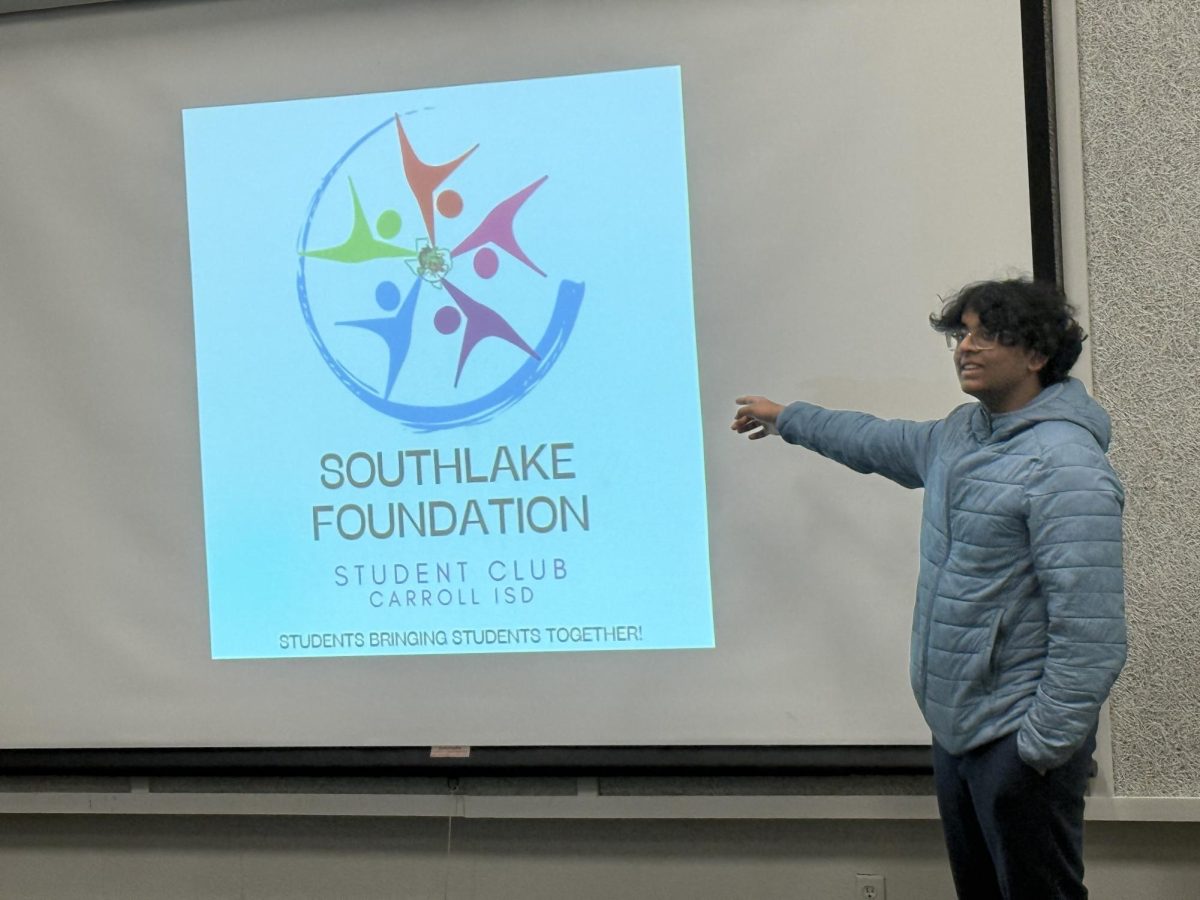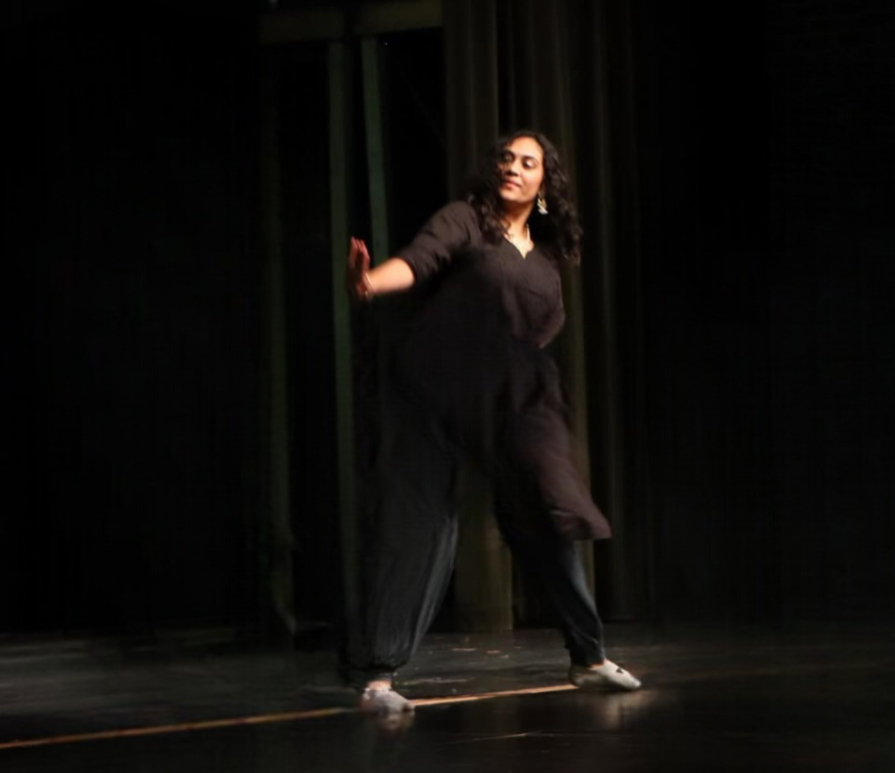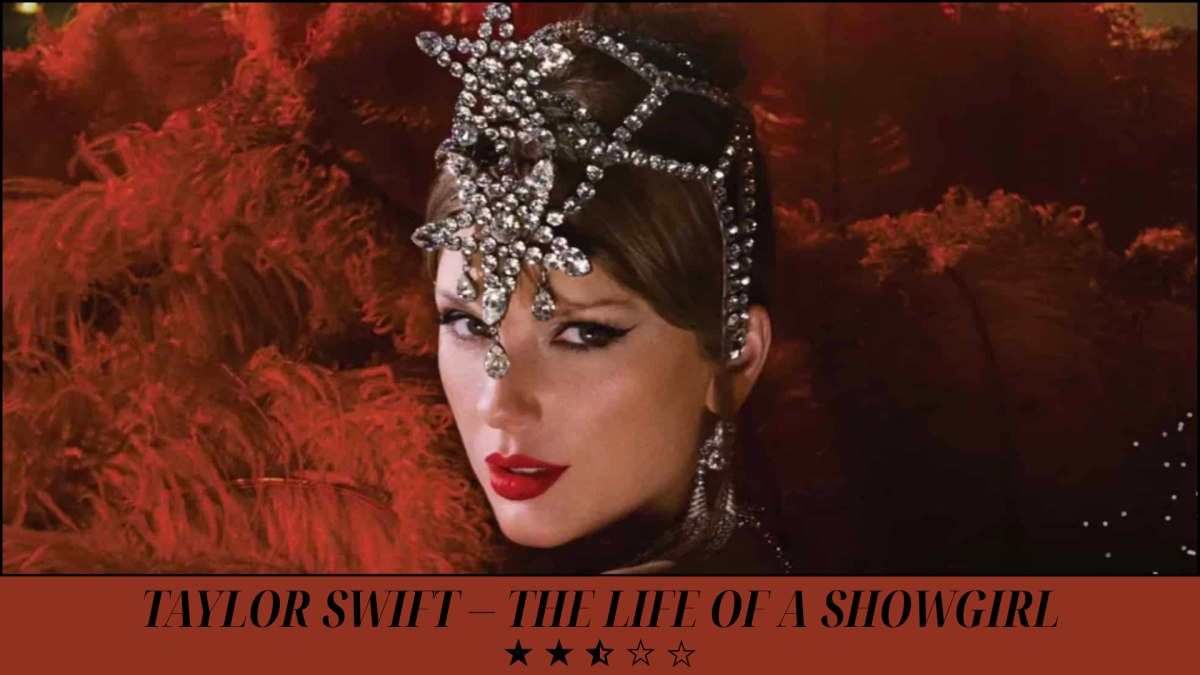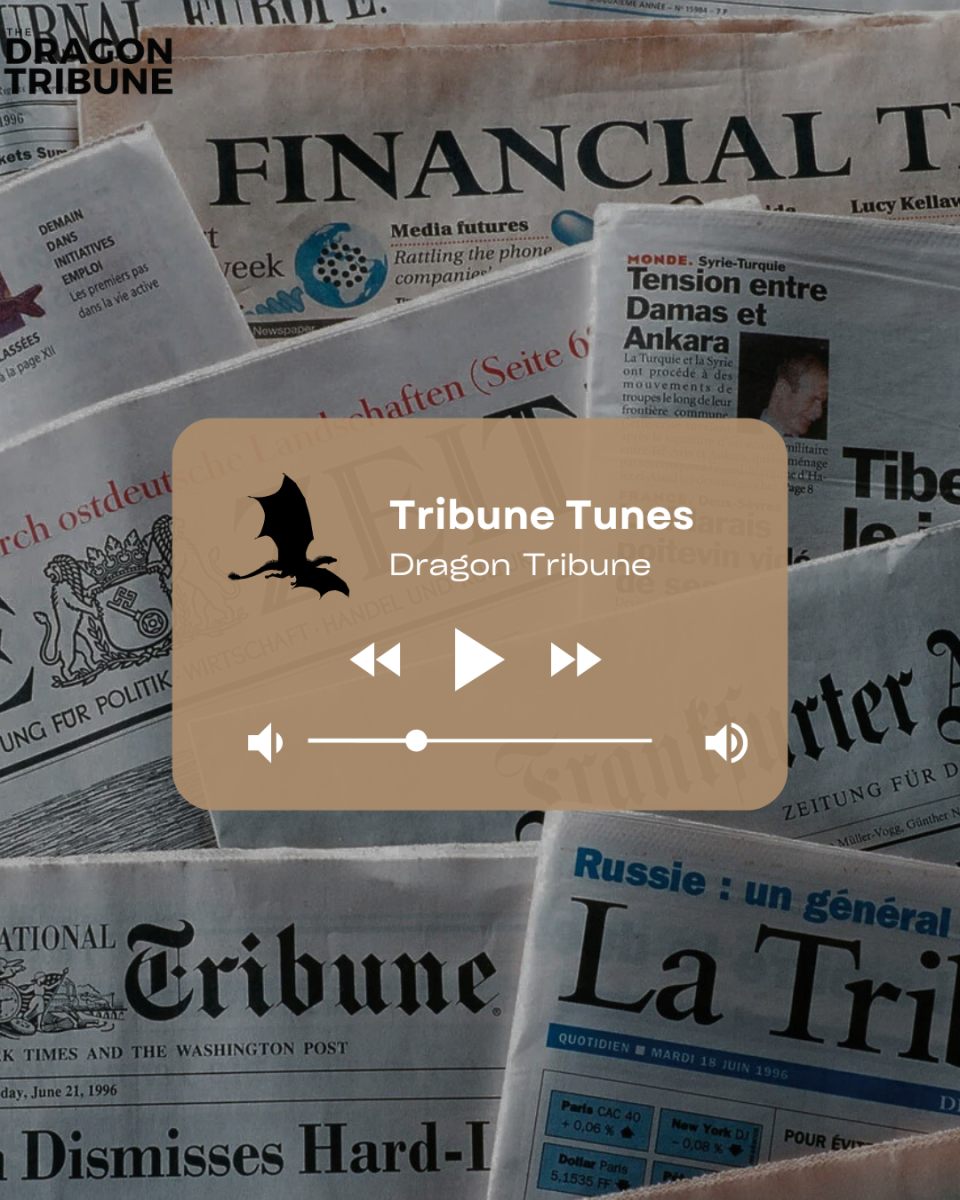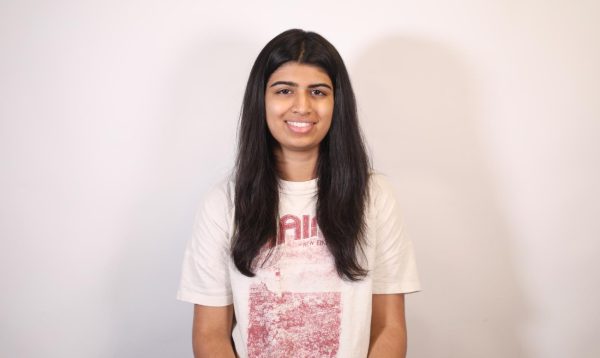Q: Hi Mr. Pollock, thank you for talking with me today. Can you take me through your teaching journey and how you became a teacher?
A: My interest in teaching actually was from my father, who spent 32 years as a biology teacher. It wasn’t necessarily education in and of itself, but I wanted to choose a profession that allowed me to have time with my family because he was always there. For activities that I was participating in, and that left an impression. So that’s the initial reason, it allowed me to have that family time. It wasn’t until the first year of teaching that I realized that this is more difficult than I had anticipated. A lot of hours beyond just the classroom setting. But I’ve always enjoyed the interaction.
Q: What subjects have you taught?
A: Of course, I’ve taught the world histories, AP and on-level. I have taught U.S. history. I’ve taught government, psychology, sociology, geography, advanced geography. I spent my first 11 years teaching in Washington state so I taught Washington state history. I haven’t taught econ. That might be one of the only ones I haven’t taught, so quite a few of them.
Q: Have you always liked history, like as a student?
A: I have. I enjoyed it even as a student. I think I got that from my mom. My mom was kind of big into history, and so it’s always been an interest of mine.
Q: Why do you think that it’s important for people to know about history?
A: You know, that proverbial ‘history repeats itself’ and that gets overplayed sometimes. But I think when people see what’s happening either to themselves, or what’s happening in the world, having that context of ‘why is this happening?’, being able to connect the dots I think it’s important in terms of making those decisions. I think even more so than history, though, the skills that you learn – how to think, I think, is far more valuable. And not everyone’s gonna be passionate about history. And so whether you want to be an expert on trivia night, in terms of the details of history, which make it interesting for me and interesting to tell you in the class, but the class is really geared towards can you apply these to a skill, you know how to write an essay and I think those skills, especially at the AP level, are more valuable than the content. I’ve had multiple students who said that they use some of the things that were taught in different classes at the college level, especially when writing papers, so that means more to me than being able to memorize historical facts.
Q: How do you think your knowledge of psychology has influenced your teachings?
A: It’s huge. I think. I’ve always felt that not everyone can do this or be comfortable doing this. I think my ability as a teacher is directly impacted by the other classes that I have taught, other courses that I’ve taught because I’m able to incorporate those, I’m able to make the connection so I use psychology all the time. I use Maslow and his hierarchy of needs and why that makes sense in terms of why people will do what they do, in terms of decisions that are made. And so being able to incorporate that and bring that in is a further connection to other learning that you guys are going through. But it also is part of the human story which is what history is anyway, so incorporating as many of those items as I can I think helps you solidify your understanding a little bit more in terms of the material and or skills that are being covered.
Q: What is your overall teaching goal?
A: I don’t know if it’s a teaching goal per se, as much as it is to make sure that you guys leave the classroom with the skills and the confidence to tackle future academic, as well as personal, issues, you know. In life, you go through curveballs and being able to kind of adjust, pick yourself back up. And when things don’t go your way to be able to kind of learn from that and move on and grow in terms of your academic capabilities, and else, that’s really where I find joy is seeing you guys start here at this lower point, not low but just, you know, not familiar and then at the end, you know, getting that message “Hey, Mr. Pollock, I got a five on the exam!” and just being able to see that is, is really kind of satisfying. So I don’t know if it’s a goal per se, as much as it is just seeing students being able to grow and seeing that manifested in future classes.
Q: Do you keep good relationships with your past students?
A: I do from time to time, but because we’re split campus, there’s not a ton of people who come by, there’s quite a few, I mean, if they’re over here, they’ll stop by if they think they’re not interrupting me, and I really do enjoy that. But I also get and it doesn’t hurt my feelings that when you’re a junior and senior and you have college pressing and so many other things that are going on, it’s kind of hard to do a side trip to say hi to a teacher, but I do get that quite a bit.
Q: What advice would you give to high school you?
A: Never give up. Take chances. And here’s a big one that I think applies especially for this district as well. And perhaps tell myself, enjoy your high school years. You can get so busy and so focused on achieving whatever that element is of achievement, but you only get to do high school once. And so you want to make those memories, you want to make those parts of your teen years that are, even if it’s a small close-knit, friendship group, don’t lose sight of still being a kid while you’re still a kid. And so I think that’s what the biggest thing is. You have the rest of your life to ‘adult’. You still want to take responsibility, you still want to challenge yourself, you still want to risk, you still want to try to see how far you can go to accomplish things. But you also don’t want to lose sight of where you are in terms of making memories and being a kid while you’re still a kid. So I guess that’s my honest answer. If I had to think about it longer, I’m sure there’s far more succinct answers I can give you there but that’s the first thing that came to my mind.
Q: With your dad being a teacher, did you always think ‘I’m gonna be a teacher’?
A: As far as I can remember, that’s that’s always been a desire. A lot of people have asked me in the past, “Hey, do you ever want to go into administration?” but I enjoy the classroom. There’s always moments where some days are better than others. But I enjoy the interaction. I enjoy seeing you guys grow. And at the time, in all honesty, when I went into education, that wasn’t my motive. I just liked history. And I liked having time, or the thought of having time, to be able to spend with my family and having a career that enabled me to do that. So that was that was my initial motive. Much harder than I thought it would be, but it’s now turned into a far more enjoyable interaction. Every day is different. Every class period is different. The same material might be covered but you’re gonna have different questions, you’re gonna have different responses from the class, and so that variety is nice as well.
Q: How did his [Pollock’s dad] being a teacher, influence you coming into this career?
A: I was more influenced by him, like I said, with him being present. If I was in a baseball game, playing baseball, playing football, playing sports, I played sports through high school. Or if I was involved in the other things, he was always at the game. Or if he would coach my little league teams. I wasn’t the drama kid or the band kid. I tried to play an instrument. I tried to do some of these other things, but sports was really my passion when I was younger. But it didn’t matter if it was me or my brother or sister. One or both were always going to be at those events. That was important to our family. Our family was important, time was important to spend and that left an impression. I didn’t know his teaching style. I didn’t even go to the same school district that he taught in. But he was a mentor. I loved him dearly, still do. So he definitely influenced me from that standpoint of what was important and priorities in life.
I always tell my kids [his students] the same thing. I always say, hey, family first. I love you, but I love my wife and kids more. I try to hold on to that kind of priority list because sometimes it can get busy. I’m grading DBQs right now. and I’m struggling, trying to get through them and my daughter’s birthday is today. So it’s like, I’m not bringing DBQs home to grade. It’s my daughter’s birthday. And so just, you know, making myself aware that, you know, you got to prioritize things.
Q: How long have you been teaching?
A: This is year 28. So I spent my first 11 years in a town right outside of Tacoma, Washington, called Steilacoom. I grew up north of Seattle, in a town called Mount Vernon. And then I moved here in the fall, well technically summer, but I started in the fall of 2007. So this is year 17 for me in Carroll, so yeah, I’ve enjoyed it.
Q: Do you see yourself continuing to teach for some time?
A: As far as I know, yeah, there’s nothing that’s really made me want to end the career. I know I’m getting closer to retirement each year. But I don’t see exactly when that will be. It’s not really on my radar in terms of imminent. So if they still will have me I’ll still do what I do. So that’s kind of how I look at it.
Q: Do you think your teaching style has changed over the years?
A: It has. I mean, there’s some elements that I keep. Ideas come and go in terms of different strategies, in terms of focus, different focus depending on you know what administration might want or what they might want to try. But at the end, you know, I teach kids and the skills for them to be successful. It’s gonna differ from person to person and it’s, I think, if you’re passionate about history, if you are passionate about your subject in any teacher’s case, and you really care for the kid, in terms of them being able to be successful, not as a student but as a person. Kids will respond to that regardless of your teaching style. But in terms of change, I still have a lot of the same stuff that I do, but I approach it differently because I’ve become more knowledgeable in terms of how to get that material out or different strategies. So yeah, I think it’s just naturally evolved with the required elements of the course too.
Q: Is there anything else you want to add about teaching?
A: I can’t think of anything off the top of my head. I think in terms of teaching as a career, it’s still a noble profession. I know there’s a lot of people looking at the profession in a light that is guarded, whether it’s for financial purposes, you’re not going to become a millionaire, being a teacher for sure. And again, not everyone is going to be geared towards the profession, but you got to do what you’re passionate about, what you enjoy. And you spend most of your waking hours in your career, so you might as well do something you like. So if it’s teaching then, you’ll find a way to make ends meet.
